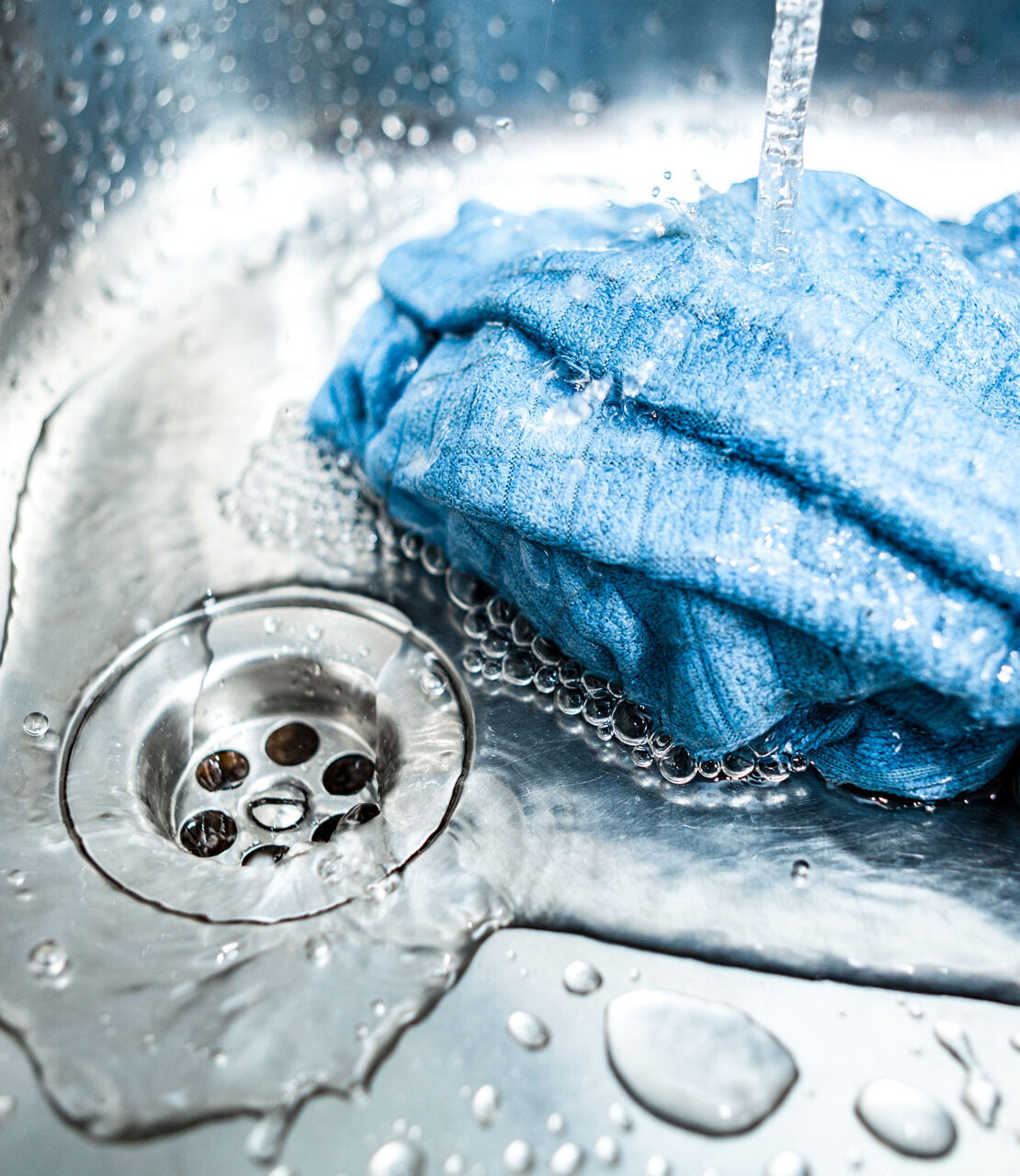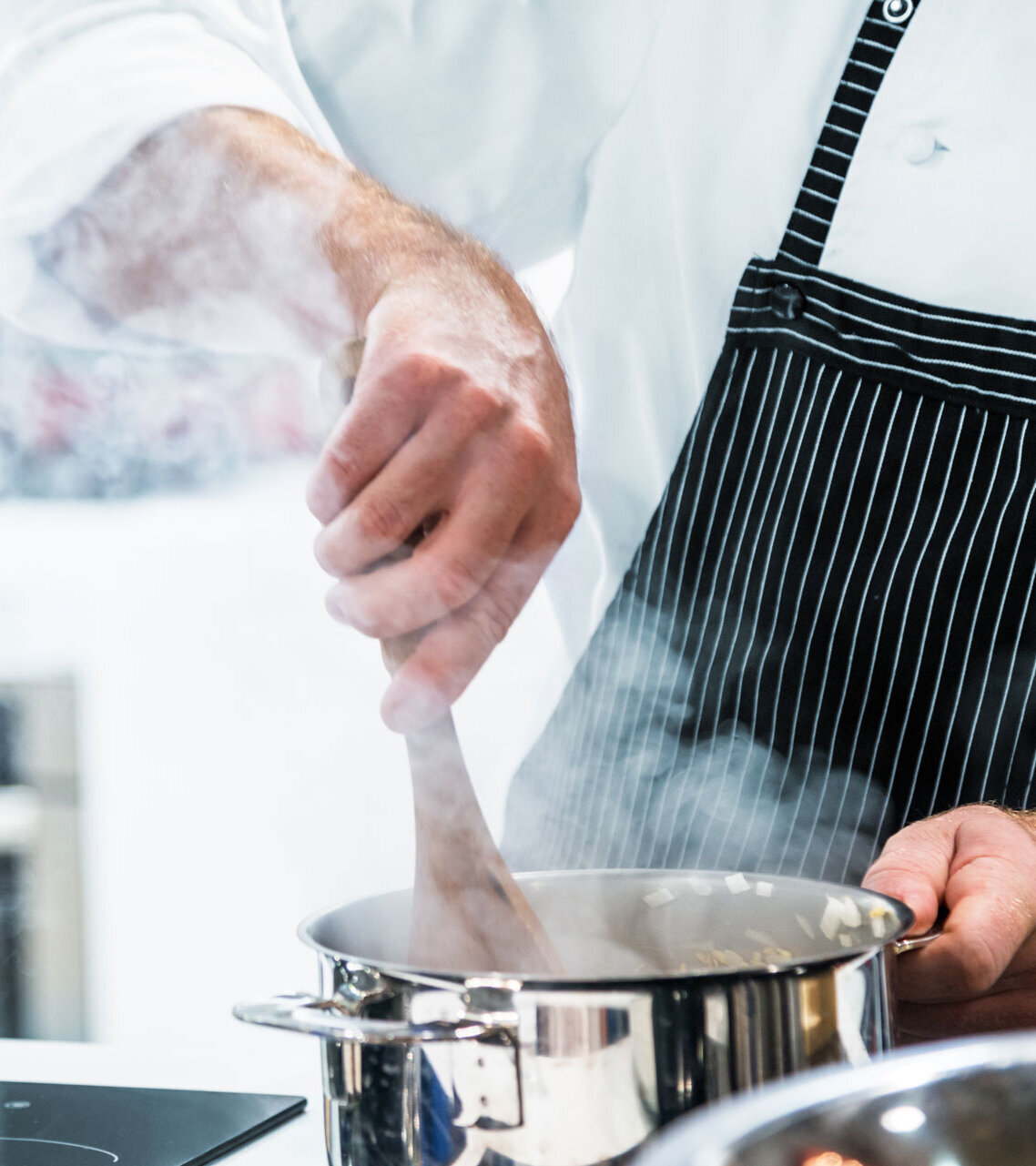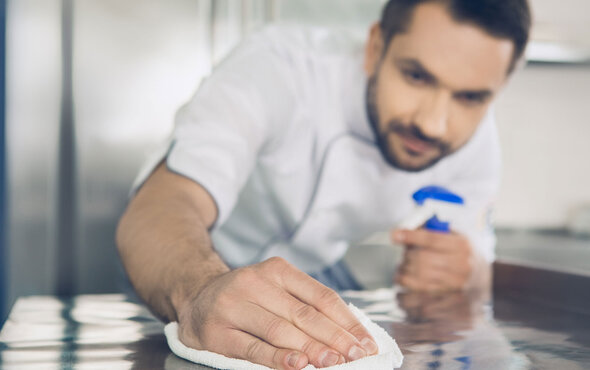1. KITCHEN UTENSILS ARE BREEDING GROUNDS FOR GERMS

For example, dirty sponges and dishcloths make excellent breeding grounds for germs. No wonder, really. These are the precise tools that come into contact with stubborn dirt when we try to clean it, even in professional kitchens. More than 360 different types of bacteria could be contained in a kitchen sponge according to researchers in Germany who examined used sponges in 2017. This is a hygiene problem since some of these germs can cause illness. ‘Five of the ten most commonly found species are risk group 2 which means that they are potential pathogens,’ says study leader Markus Egert at Furtwangen University. And did you know that with the osmosis module in a MEIKO commercial dishwasher, you will no longer need tea towels? Glassware, crockery and cutlery are guaranteed to be clean and shiny after the wash cycle – with no need to polish! ’
REGULAR WASHING HAS LIMITED BENEFITS
These bacteria can be a significant health risk, especially for people with weakened immune systems, such as the elderly or people with health conditions. They are invisible to the naked eye but they get everywhere: across worktops and knives, and ultimately finding their way into the food. The researchers found that carefully wringing out and drying sponges or even putting them through the washing machine will only help with hygiene to a certain extent. These measures kill or remove many bacteria in the short term but later on, even higher concentrations of pathogenic bacteria were detected in sponges that were cleaned regularly, that is compared to harmless bacteria. It seems that the harmful pathogens are able to kick start again, multiplying faster and using the ‘vacant’ space in the sponge to spread. The scientists conclude that kitchen sponges should therefore be replaced at least once a week or even more frequently.
2. SINKS AND WORK SURFACES
Microorganisms are persistent creatures. A sink can be freshly cleaned with a (preferably germ-free) dishcloth or washing-up sponge, the metal shining and sparkling back at you and yet it is still home to a veritable plethora of microorganisms. "By and large, these organisms occur throughout this environment. Many are waterborne microorganisms and moulds that are carried into the kitchen in foodstuffs," explains Professor Dirk Bockmühl of the Hygiene and Microbiology research group at Rhine Waal University of Applied Sciences in the magazine, "bento". He believes that a professional dishwashing machine is the way to get crockery properly clean, "Dirty items go into the dishwashing machine and come out hygienically clean."
3. STEAM AND MOLD
A busy kitchen creates mess – you've seen it at home. Commercial kitchens are no exception: worktops and appliances get dirty and need cleaning and washing. Slaving over a hot stove produces an inordinate amount of dirty dishes. The kitchen team needs to get it all clean again in quick-time. To do that, they need a reliable commercial dishwashing machine, preferably one that can handle constant operation. The commercial dishwashing specialists at MEIKO provide efficient commercial dishwashers that save time with their short wash cycles and churn out hygienically clean and beautifully dry dishes by washing at a high temperature. Oh, and you won't need to polish anything, either.
On top of all that, MEIKO commercial dishwashing machines release barely any visible steam after a wash cycle, avoiding heating the room unnecessarily. That is not to be sniffed at in the often hot and humid environment of a commercial kitchen. This has several advantages: the indoor climate in the kitchen and the efficiency of the kitchen staff are improved, not to mention it gives pesky mold no opportunity to form. Learn about how MEIKO's new heat recovery system works here.




